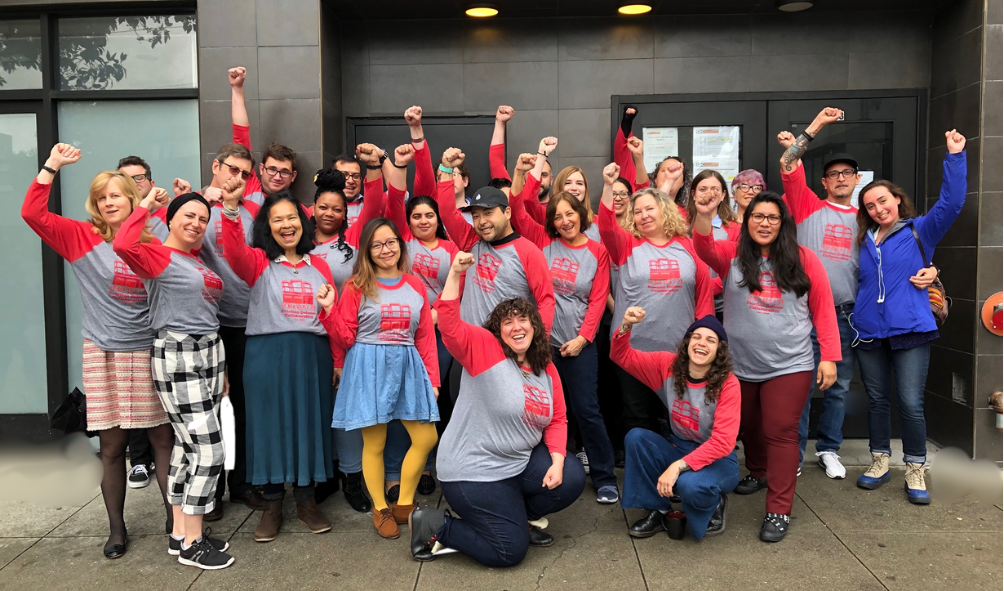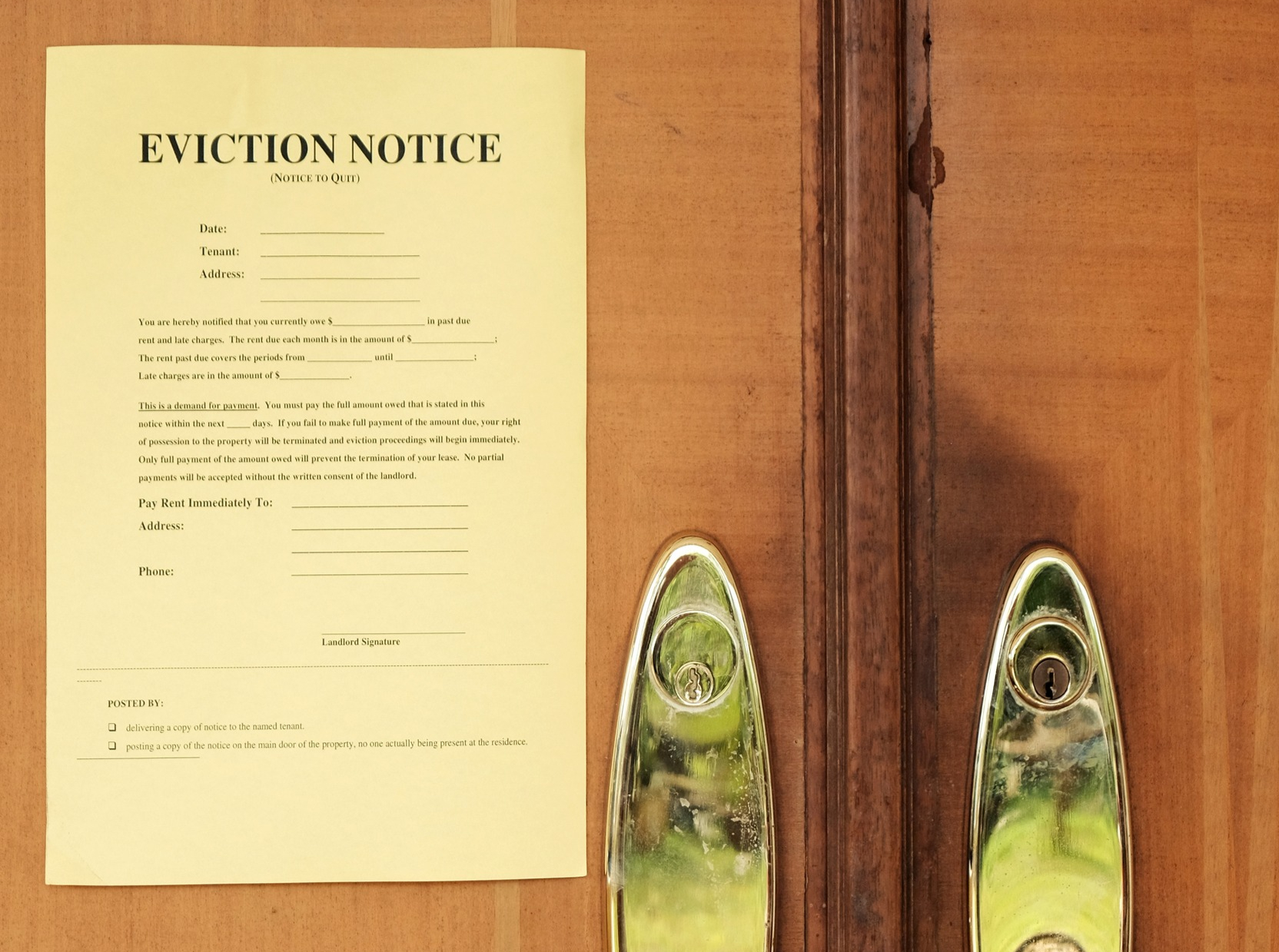Fighting an eviction is stressful and confusing, but you don’t have to go through it alone. As a tenant in San Francisco, understanding your rights and getting legal support can make a huge difference in your case. Whether you’re struggling financially, dealing with a difficult landlord, or facing eviction, legal representation can provide guidance, protect your rights, and help you work toward a fair resolution.
Why Legal Representation is Crucial
Evictions are complicated and often intimidating, but having a lawyer can improve your chances of staying in your home or negotiating better outcomes. Here’s how legal representation can help:
Understanding Your Rights as a Tenant
- Know Local Laws: Eviction rules vary by city and state. A lawyer can help you understand San Francisco’s tenant protections, your notice period, and whether your landlord follows the law.
- Stop Illegal Evictions: Some landlords try to force tenants out unlawfully, like changing locks, cutting off utilities, or retaliating after you report unsafe conditions. A lawyer can protect you from these tactics.
Reviewing Lease Agreements
- Lease Violations: If you’re being evicted for breaking lease terms, a lawyer can help analyze your agreement and find possible defenses.
- Negotiating with Your Landlord: A lawyer may help you work out a payment plan, lease extension, or alternative agreement to avoid eviction.
Challenging an Eviction
A lawyer can identify defenses against your eviction, such as:
- Improper Notice: Your landlord must follow legal procedures for serving an eviction notice, and the content of the notice must comply with strict rules
- Unlivable Conditions: You may have a case if your landlord neglected repairs or violated California’s habitability laws.
- Retaliation: If you’re being evicted soon after exercising your legal rights (such as reporting unsafe living conditions), your eviction may be considered retaliatory and thus illegal.
- Discrimination: If the eviction is based on race, gender, disability, or other protected categories, it may violate federal or state discrimination laws.
Representing You in Court
- Legal Support: A lawyer can file motions, present evidence, and represent you in court.
- Negotiating a Settlement: Instead of eviction, your lawyer may negotiate a deal with your landlord, such as more time to move, probationary terms that let you stay in your home, or a reduction in unpaid rent.
Finding Housing After an Eviction
- Record Protection: A lawyer may help prevent an eviction from appearing on your record, making it easier to rent again.
- Exploring Housing Programs: Legal representation can connect you to housing assistance, emergency shelter, and nonprofit support.
Exploring Rental Assistance Programs
Financial assistance might be available if you’re behind on rent. San Francisco provides emergency rental aid via programs like SF ERAP, offering financial aid to tenants. To contact our rental assistance team, email edcradco@evictiondefense.org. For inquiries specifically about rent subsidies, email subsidy@evictiondefense.org.
Tip: Apply ASAP—funds are limited!
Mediation Services
- Alternative Dispute Resolution (ADR): Mediation may help resolve disputes with your landlord before going to court. A neutral third party can help find a fair solution without needing eviction. A lawyer can represent you in mediation to negotiate a better outcome.
When to Seek Legal Help:
If any of these apply, get legal representation immediately:
- You’ve received an eviction notice.
- You believe your eviction is illegal (e.g., retaliation or discrimination).
- You want to fight the eviction in court.
- You need help negotiating more time or a payment plan.
How the Eviction Process Works in San Francisco
San Francisco has strong tenant protections. If you’ve received an eviction notice, it’s crucial to understand the process:
- Notice of Eviction: Your landlord must give written notice (3-60 days, depending on the reason).
- Unlawful Detainer Lawsuit: If you don’t leave or resolve the problem during the notice period, the landlord files an eviction lawsuit.
- Court Process: You have 10 days to respond after the court papers have been served on you —if you ignore it, the court may automatically rule against you. Contact a lawyer immediately if you’ve been served with court papers.
- Preliminary Motions: A lawyer can help you file motions objecting to technical errors in the process, including improper service of the court papers or inappropriate language. Sometimes, these motions can resolve the entire matter and result in a dismissal.
- Discovery: Through their attorneys, the landlord and the tenant can use various tools to gather information about their case’s strengths and weaknesses, assess the case for settlement, and prepare for trial.
- Settlement Conference: The parties and their lawyers meet with a settlement judge to try to reach a negotiated resolution. Most cases are resolved at this stage.
- Trial: A judge and/or jury will review the evidence from both sides. A lawyer can help ensure your case is presented correctly, increasing your chances of avoiding eviction or securing a more favorable outcome.
- Judgment & Appeal: If the court rules against you, you have 30 days to appeal. Otherwise, the Sheriff will carry out the lockout, usually within a few weeks.
- After the Eviction: Even after a ruling, you may have options, such as negotiating a settlement or applying for rental assistance. A lawyer can help guide you through the following steps.
Tip: NEVER ignore an eviction notice—call a lawyer right away!
San Francisco’s Just Cause Eviction Ordinance
San Francisco’s Just Cause Eviction Ordinance protects tenants from arbitrary evictions. Here’s what you should know:
- Eviction Protected Units: Most units in San Francisco are protected, even if not covered by rent control, meaning that you cannot be evicted without a valid reason.
- Just Cause Protections: Evictions must be due to just causes, such as non-payment, lease violations, or owner move-in.
- Rent Control Coverage: Not all units are rent-controlled. If either state or local rent control does not cover your unit, your landlord has more flexibility in setting rent prices, but they must still follow proper legal procedures and have just cause to evict.
Tenant’s Rights During the Eviction Process
Understanding your rights is essential during the eviction process. Tenants have several protections that ensure they are treated fairly. Here are some necessary rights to remember:
- Right to a Written Notice: Landlords must serve tenants with a written eviction notice, which typically gives them 3 days for fault evictions and 30 or 60 days to move out for no-fault evictions, sometimes longer, depending on the reason for eviction.
- Right to Contest the Eviction: If you disagree with the eviction, you have the right to contest it. You can present defenses in court if the eviction is based on illegal grounds.
- Protection from Retaliatory Eviction: If you are evicted for exercising your legal rights, such as reporting safety hazards or organizing a tenants’ union, it may be considered retaliatory and, therefore, illegal.
How to Protect Your Belongings
During an eviction, it’s essential to take steps to protect your personal belongings:
- Tenant’s Right to Remove Belongings: You still have the right to remove your belongings, even after losing a court eviction lawsuit followed by a sheriff’s lockout. Landlords cannot throw away your things without following legal procedures, even if you’ve been served with an eviction notice and removed from the premises.
- Temporary Storage: Many local community organizations and shelters offer storage assistance if you need to temporarily store your belongings. Contact them for advice on securing storage while you manage your housing situation.
Tenant Protections in San Francisco
San Francisco provides strong protections to help renters prevent unfair eviction. Here’s what you need to know:
Rent Control Protections
Strict regulations protect San Francisco’s rent-controlled units. This means:
- Landlords cannot raise rents beyond a certain percentage each year.
- Tenants cannot be evicted without a valid legal reason (this may apply even if not rent-controlled).
- Rent control helps keep housing affordable and stable.
- California rent control protections may apply if SF rules don’t.
Tip: If you are unsure if your unit is rent-controlled, contact the SF Rent Board at (415) 252-4600 for clarification.
Relocation Assistance
If you’re evicted for a no-fault reason (like an owner move-in or building demolition), you may be entitled to relocation assistance, which can help cover:
- Moving expenses
- A temporary housing stipend
- Other costs related to displacement
Tip: Landlords must follow strict legal procedures before forcing you out. If you receive a no-fault eviction notice, consult a lawyer right away.
Tenant Protections for Pregnant and Disabled Tenants
San Francisco prohibits discrimination based on pregnancy or disability. If this is your case, your landlord may be required to provide reasonable accommodations, such as:
- More time to pay rent
- Extra time to move out
- Reasonable adjustments to lease terms
Tip: If you suspect discrimination, contact the San Francisco Rent Board or a tenant advocacy group for support.
Where to Find Legal Representation in San Francisco
Here are several resources that provide legal and emergency housing assistance:
Eviction Defense Collaborative (EDC)
Free legal help for tenants facing eviction.
- Hotline: (415) 659-9184
- Email: legal@evictiondefense.org
San Francisco Rent Board
Help with rent control & tenant rights.
- Phone: (415) 252-4600
SF Emergency Rental Assistance Program (SF ERAP)
Financial aid to prevent evictions.
- Phone: (415) 653-5744
- Email: help@sferap.org.
Tip: If you’ve received an eviction notice, don’t wait—call one of these resources immediately.
Additional Resources
Beyond legal representation, these organizations and programs can help tenants with eviction, housing, and financial support:
- San Francisco Courts Website: Detailed information on eviction laws, court forms, and tenant rights
Emergency Housing Options & Shelters
If you’re at immediate risk of homelessness, these programs provide shelter and housing support:
SF Homelessness and Supportive Housing
Connects individuals in crisis with emergency shelters & housing options
- Phone: (628) 652-7700
SafeHouse and Community Shelters
SafeHouse provides temporary housing for individuals and families in urgent need. Many shelters in the city offer beds and other support for people facing eviction.
San Francisco Homeless Outreach Team (SFHOT)
Mobile outreach teams help place people in emergency shelters
- Phone: (628) 652-8000
Tip: Shelter spots fill up quickly—if you need immediate housing, contact these resources as soon as possible.
Additional Tenant Resources
If you need extra legal support, financial help, or tenant advocacy, these organizations can assist:
San Francisco Housing Development Corporation (SFHDC)
Counseling & eviction prevention for low-income tenants.
- Phone: (415) 822-1022
San Francisco Bar Association (SFBA) Legal Services
Free or low-cost legal representation for tenants.
- Phone: (415) 982-1600
Tenants Together
Statewide nonprofit supporting renters facing eviction.
- Phone: (650) 600-7821
Tenant Counseling Services
Eviction can take an emotional toll. If you need mental health support or counseling, consider these options:
- National Alliance on Mental Illness (NAMI): Mental health support for individuals facing eviction or housing instability
- Helpline: (800) 950-6264
- Catholic Charities of San Francisco: Counseling and emotional support for tenants in crisis.
- Phone: (415) 972-1200
In addition to emotional support, valuable tenant counseling services provide advice and guidance through challenging housing situations. These organizations can help you:
- Housing Rights Committee of San Francisco (HRCSF): Offers free legal counseling and tenant education.
- Phone: (415) 703-8634
- San Francisco Tenants Union (SFTU): Provides tenants with information on their rights and assistance with disputes.
- Phone: (415) 282-6622
Key Takeaways
Eviction is stressful, but you have rights. You can navigate the eviction process with appropriate legal representation and access the protections available.
- Act fast – The sooner you seek help, the more options you have.
- Know your protections – San Francisco vigorously protects tenants.
- Apply for rental assistance – Funding is limited, so don’t wait.
- Legal representation can fight for you – Whether negotiating a deal or going to court, a lawyer can make a difference.
Need help? Don’t wait! Reach out for legal support now—you don’t have to face this alone.




